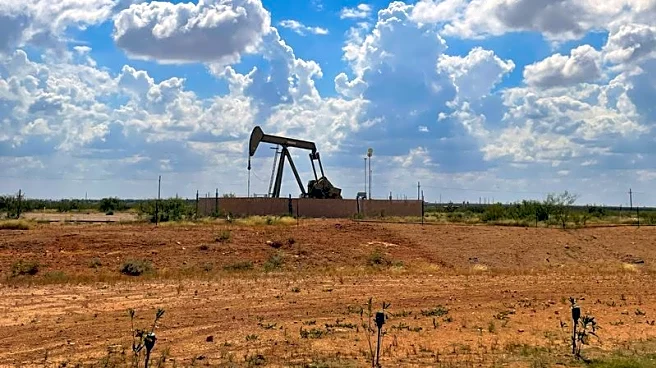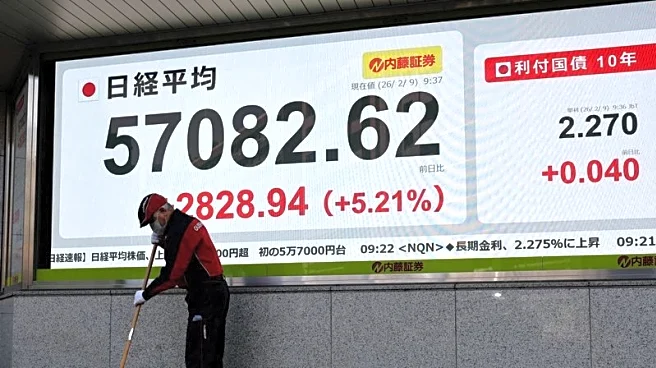Rapid Read • 8 min read
The U.S. job market is experiencing a slowdown, with only 73,000 jobs added in July, falling short of the expected 102,000. This decline is attributed to President Trump's import tariffs and intensified immigration policies, which have led to federal layoffs. Economists suggest that the labor market may be weaker than previously thought, as downward revisions to April and May's job numbers indicate a troubling trend. In response to the disappointing figures, President Trump dismissed Erika McEntarfer, the U.S. Commissioner of Labor Statistics, accusing her of manipulating data for political purposes, though no evidence was provided. Concerns are growing that the tariffs could lead to a recession, with sectors like manufacturing, retail, trucking, and warehousing potentially facing weaker job gains.
AD
The current economic situation poses significant challenges for various U.S. industries, particularly those reliant on manufacturing and retail. The tariffs imposed by President Trump are likely to increase prices, leading consumers to cut back on spending, which could further weaken job growth. The potential for a recession looms large unless the tariffs are reduced, impacting economic stability and employment rates. The firing of the U.S. Commissioner of Labor Statistics raises questions about the administration's handling of economic data and its implications for public policy. The broader impact on the U.S. economy could affect political dynamics, especially with upcoming elections, as economic performance often influences voter sentiment.
Economists warn that a recession is 'very, very likely' unless President Trump lowers tariffs by Labor Day. The administration's aggressive recruitment campaign for immigration agents, offering bonuses up to $50,000, aims to support the border crackdown, potentially affecting local law enforcement staffing. Political tensions may rise as Texas Democrats leave the state to block a redistricting vote, which could alter congressional representation. The economic and political landscape remains uncertain, with stakeholders closely monitoring developments in tariffs, job market performance, and immigration policies.
The economic policies under President Trump could lead to long-term shifts in U.S. manufacturing and retail sectors, as businesses adapt to changing tariff regulations. The dismissal of a key labor statistics official may have ethical implications regarding the transparency and accuracy of economic data reporting. The aggressive expansion of ICE operations could strain community relations and local law enforcement resources, highlighting cultural and societal challenges in immigration policy enforcement.
AD
More Stories You Might Enjoy












